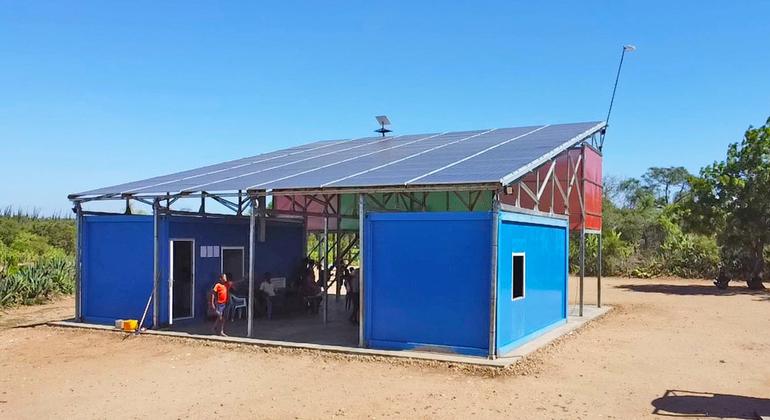Droughts exacerbated by climate change have left many communities in Madagascar struggling to grow crops and survive, leading to a reliance on humanitarian aid. However, in the village of Fenoaivo in the Anosy region, the availability of electricity and water is revitalizing the community. The World Food Programme (WFP) has been working in Fenoaivo to address the villagers’ most pressing needs: water and electricity. By sinking a water hole, building a storage tank, and installing solar panels to power a pump, the village now has access to clean and drinkable water for irrigation and household use.
The combination of water and electricity is proving to be a catalyst for development in Fenoaivo. The 72 solar panels installed in the village generate around 25 kilowatts of clean and renewable electricity, opening up new opportunities for entrepreneurial activities. The villagers are now able to grow crops, including melons in a greenhouse, and access digital learning centers with internet connectivity. The introduction of electricity has also improved security in the village, particularly for women, as there are now lights available at night. Additionally, small businesses like a restaurant and a barber shop have been established, providing economic opportunities for the community.
The availability of electricity, as part of the Rapid Rural Transformation initiative, is leading to more entrepreneurial opportunities like barber shops. The village of Fenoaivo, with its newly installed solar panels, is now able to power various activities and businesses that were previously unavailable to the community. Men in the village are excited to get their first-ever buzz cuts, thanks to the barber shop now equipped with electricity. The businesses in the village pay rent and contribute towards the cost of electricity, which is managed by a community association elected to run the project. Some of the funds collected will be used to build new school classrooms in the village.
The impact of the water and electricity project in Fenoaivo is evident in the improvements seen in the community. With access to clean water for irrigation and household use, the villagers are now able to grow crops and sustain themselves. The introduction of electricity has not only provided economic opportunities through new businesses but has also enhanced education and security in the village. The success of this pilot program demonstrates the importance of addressing basic needs like water and electricity to promote sustainable development in vulnerable communities affected by climate change.
Overall, the combination of water and electricity has been transformative for the village of Fenoaivo in Madagascar. The availability of clean water for irrigation, household use, and new businesses, along with the power generated by solar panels, has brought about significant improvements in the community’s quality of life. As the villagers continue to benefit from these essential resources, they are better equipped to overcome the challenges posed by climate change and build a more resilient future for themselves and future generations.









